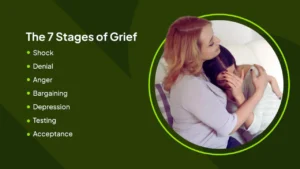One of the most important issues of our day is mental health, particularly. The people are balancing relationships and work-life balance. Also, personal obligations, and frequently trauma or ongoing stress. Through expert care, useful tactics, and sympathetic direction. Adult behavioral health services provide vital help that tackles these very real issues. These therapies are essential for helping adults achieve equilibrium and control over their lives. Whether they are dealing with behavioral issues, substance abuse, anxiety, or depression.
Table of Contents
ToggleKey Areas Covered by Adult Behavioral Health Services

| Service Area | Examples | Who It Helps |
| Individual Therapy | Cognitive Behavioral Therapy, EMDR | Adults with anxiety, depression |
| Medication Management | Psychiatry appointments | Those needing psychiatric support |
| Group Counseling | Anger management, recovery groups | Adults struggling with social issues |
| Case Management | Housing, jobs, and benefits assistance | Low-income or displaced individuals |
| Crisis Intervention | Suicide prevention, mobile response | Individuals in immediate distress |
Why Behavioral Health Matters in Adulthood

Life as an adult is complicated. Many adults suffer in quiet due to cultural pressure. to remain strong, parenthood, caregiving, and career demands. A judgment-free environment for processing emotions, comprehending triggers, and enhancing general well-being is offered by behavioral health treatments. By bridging the gap between psychological distress and practical recovery, these services assist adults in becoming their best selves again. The goal is to equip folks to manage daily stress and more skillfully navigate life’s transitions, not only diagnose them.
Common Mental and Behavioral Health Struggles Adults Face
Let’s be honest: growing up comes with pressure. Many people suffer from anxiety as a result of unstable employment, sadness brought on by loneliness, or burnout from excessive effort. Others might struggle with long-term substance abuse, PTSD, or mood disorders. These issues are taken seriously by adult mental health professionals. They develop individualized treatment programs that accommodate working adults’ schedules, providing weekend appointments, telehealth, and in-home counseling as necessary.
Signs You May Benefit from Adult Behavioral Health Services
| Sign or Symptom | Possible Service Needed | Benefits of Early Action |
| Trouble sleeping or eating | Individual counseling | Restored daily routine |
| Irritability or frequent anger | Anger management or therapy groups | Better relationships |
| Loss of interest in hobbies | Depression treatment programs | Return of joy and motivation |
| Panic attacks or nervous thoughts | Anxiety therapy | Calmness and clearer thinking |
| Substance misuse | Addiction recovery support | Safer, healthier lifestyle |
Real-World Examples of How These Services Help

Consider Jenna, a 34-year-old mother of two who struggled to bond with her kids due to postpartum depression. Within a few months, she began to feel more like herself with counseling and medication treatment from a behavioral health center. Or take 42-year-old Tom, who became an alcoholic after losing his job. He found work and regained the trust of his family with the help of group therapy and a helpful recovery coach. These are genuine, upbeat accounts from actual adults—not anomalies, but rather illustrations of the potential of good care.
The Role of Therapy in Behavioral Health Services
The foundation of adult behavioral health care is frequently therapy. While group therapy promotes connection and shared learning, one-on-one treatment allows individuals to open up and reflect. Adults can manage symptoms and alter thought patterns with the help of strategies including cognitive behavioral therapy (CBT), dialectical behavioral therapy (DBT), and trauma-informed treatment. The goal of therapy is to help you become the best version of yourself, not to fix you.
Medication Management and Psychiatric Support

Medication is often part of a comprehensive behavioral health treatment for adults. This could include mood stabilizers, antidepressants, or anxiety-reducing drugs that are given and closely watched by a psychiatrist. Although medication isn’t a panacea, it can lessen symptoms sufficiently to improve the effectiveness of therapy. Services for adult mental health include ensuring that any medication is properly tracked, side effects are controlled, and progress is evaluated regularly.
Integrated Services: Mental Health, Substance Use, and Daily Life
The way that contemporary adult behavioral health therapies incorporate different life requirements is what increases their effectiveness. This could be assisting a recovering person with housing aid or supporting someone with job applications while they attend counseling. Integrated services take into account the individual as a whole, not just their diagnosis. To provide a solid basis for long-term improvement, case managers frequently collaborate with therapists, psychiatrists, and peer support specialists.
Community-Based Programs and Accessibility
Community-based programs are challenging the widespread belief that behavioral health services are only available in hospitals or private practices. A larger audience can receive services thanks to mobile crisis units, teletherapy platforms, and nearby behavioral health facilities. Financial barriers are eliminated by programs that accept Medicaid or provide sliding scale payments. In every way, community-focused care aims to meet folks where they are.
How to Start Your Behavioral Health Journey
It begins with a single step. You can get in touch with a behavioral health provider directly, your primary care physician, or your local health department. The majority of services start with an intake meeting where you can discuss your objectives and obstacles. A treatment plan is then created based on what suits your needs. If you are unsure of the type of support you require, don’t worry; professionals are qualified to help.
You Deserve Support, Not Silence
It’s time to get help if you’ve been keeping things together on the exterior but are falling apart on the inside. Behavioral health care is a strong step toward healing, not a sign of weakness. Support is waiting, accessible, and reasonably priced. Today, take the first step.
Wrapping Up
The goal of adult behavioral health care is to enable individuals to have more balanced, satisfying lives, not only to manage symptoms. Support is available whether you’re dealing with stress, trauma, anxiety, or significant life changes. You don’t have to do it all by yourself. Set off on the adventure and allow assistance to guide you.
FAQs
What are adult behavioral health services?
Therapy, medication management, casework, and peer support are all examples of adult behavioral health treatments that assist individuals with emotional, mental, or behavioral problems. Conditions like anxiety, depression, trauma, addiction, and stress-related issues are all addressed by these treatments.
How do I know if I need behavioral health support?
It could be time to get treatment if you’re experiencing anxiety, depression, overwhelm, or difficulty managing daily life. Indicators may also include behavioral symptoms, including substance abuse, mood swings, or loneliness. A licensed mental health professional can evaluate your circumstances and provide a customized approach.
Are behavioral health services confidential?
Yes, behavioral health services adhere to stringent privacy regulations. Unless there is a risk of harm, providers are required by law and ethics to keep your information private. Your privacy is protected whether you participate in group or individual treatment sessions.
Do adult behavioral health services include medication?
Depending on your needs, they can. In addition to treatment, many individuals find that antidepressants and anxiety medications help them. A psychiatric nurse practitioner or psychiatrist will evaluate your symptoms, go over your alternatives, and keep an eye on any medications you may be taking.
Can I afford behavioral health services without insurance?
Indeed, community mental health institutions frequently offer free or inexpensive solutions, and many clinics offer sliding scale prices based on income. Medicaid and state programs provide funding for some services. Additionally, telehealth providers could charge less.
How long does behavioral health treatment take?
While some adults benefit from brief therapy lasting a few months, others require ongoing care for a year or longer. Your goals, diagnosis, and response to therapy or medication will all affect how long your treatment takes.
What’s the difference between mental health and behavioral health?
Emotional and psychological well-being, such as controlling anxiety or depression, is the main goal of mental health. In addition to those elements, behavioral health encompasses acts related to day-to-day activities, like substance abuse, eating patterns, or stress responses.





